There were five finalists in the HMI Leaders Award.
Collaborative Pharmaceutical Care at Tallaght Hospital
Ann Allen and Tamasine Grimes, Tallaght Hospital
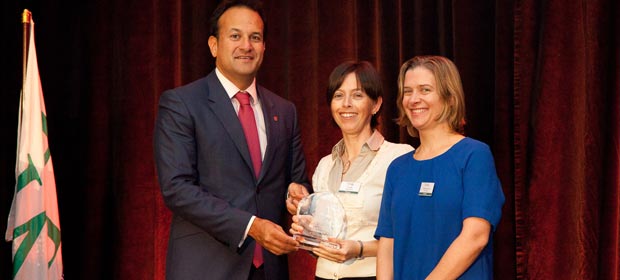
This initiative was motivated by a desire to enhance medication safety. Ann and Tamasine undertook research into the benefits of introducing Collaborative Pharmaceutical Care in Tallaght Hospital. They compared this approach with standard ward based clinical pharmacy for adult inpatients receiving acute medical care. They were concerned with the prevalence of medication error and issues with quality of prescribing. With over 25% of adults aged 50+ using 5 or more medicines daily, mismanagement has serious consequences for both patient and the healthcare system. The result of the research indicated that PACT, the collaborative model was protective against potentially severe medication errors in acute medical patients and also improved the quality of prescribing in older patients. This is real and positive change and making a difference.
Consistent Bladder-Volumes for Prostate Radiotherapy Patients
Evelyn O’Shea, St. Luke’s Hospital, Rathgar
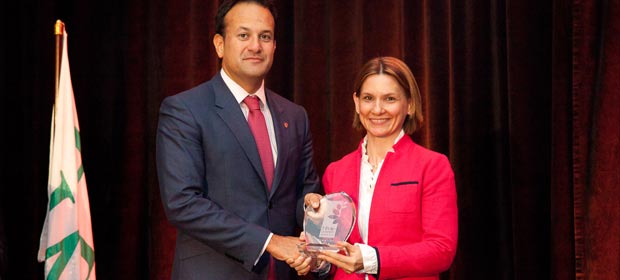
This four phase project by Evelyn and her colleagues has witnessed a revision of what was understood as acceptable clinical practice in the on-going radiation treatment of prostate cancer patients. With perseverance and tenacity, she overcame many obstacles to produce evidence based improved practice regarding water drinking instructions. The new standardised instructions achieve consistent bladder volumes without the need for patients to completely fill their bladders. The new protocol has reduced the burden on the patient, and made the provision of care easier for staff in addition to improving radiation treating planning.
Family Room
Carmel Sheehy, UL Hospital, Nenagh
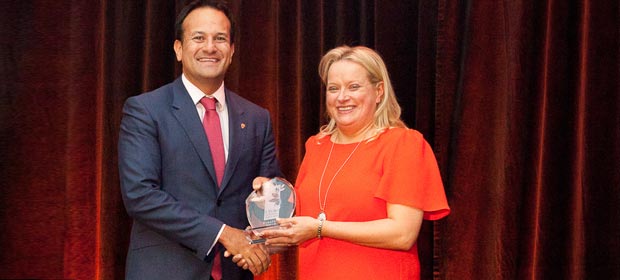
The purpose of this project was to provide a quiet, tranquil space for the relatives of patients receiving end of life care at Nenagh Hospital. True grit from Carmel saw this project through from beginning to end. From sourcing funding to identifying a space within the hospital, the transformation from broom cupboard to family room was finalised earlier this year. This has had a significant impact for families at a hugely vulnerable time and is evidenced by the many letters of thanks received by Carmel and her colleagues. The establishment of the family room at Nenagh Hospital also represents a cultural shift within the hospital regarding end of life care.
RANP Cardiology Led Cardiac Assessment and Risk Evaluation
Jacqueline O’Toole, Naas General Hospital
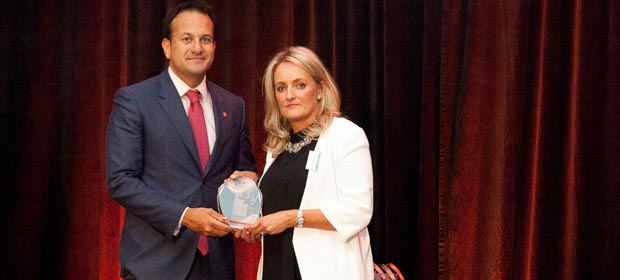
The onset of acute chest pain is a highly worrying and anxiety producing symptom for adults. It constitutes between 20-30% of all medical admissions. For Jacqueline and her colleagues a key service goal is to produce a service which is accessible, patient centred and focused on improving quality and safety.
Following an audit, Jacqueline and the team identified the service needs of patients presenting with such symptoms. Through the introduction of Accelerated Emergency Department protocols the CARE Clinic was established where they achieved significant improvement in patient care, reduced admissions and financial savings estimated at €2.2m.
Self Management Plans using a “Beaumont Respiratory Passport” for patients with Chronic Obstructive Pulmonary disease (COPD)
Niamh McCormack, Beaumont Hospital
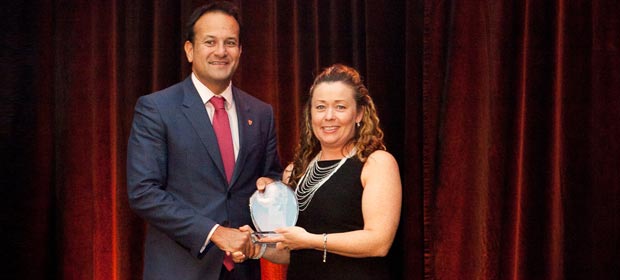
In Ireland, 10% of acute hospital admissions are as a result of COPD exacerbations. With vision and determination, Niamh and her colleague set about improving these statistics. The result of this effort has produced the COPD Passport. This low cost solution is a personalised information booklet for patient and service provider alike. It empowers the patient and assists them in managing their own condition. The use of the passport also allows for an integrated approach to be adopted by Multi Disciplinary Teams. Ultimately, it has meant a significant reduction in hospital admissions as a result of exacerbations with consequent benefits for service users, reductions in acute bed usage and financial savings.

